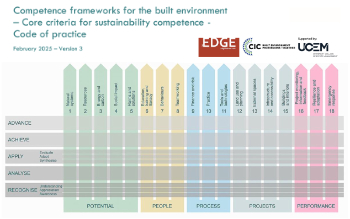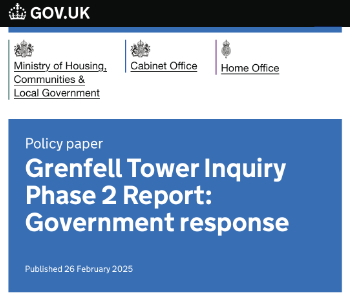How and why you should be reporting on project success
Contents |
[edit] Introduction
An effective business should conduct regular reporting on project success. Analysing performance will help you work effectively towards your key performance indicators (KPIs), and allow for beneficial changes to be identified. By not reporting on project success, you are putting your business at a disadvantage. Here, a look at how to carry out self-reporting, and why reporting on project success is important to the success of a business.
[edit] Top tips for reporting project success
[edit] Know what you’re measuring
The key to reporting your project success is to know what you are looking for, the outcomes you are expecting, and measure the current outcomes alongside these expectations. There are many factors your company could measure. Perhaps you are looking at customer engagement and feedback, whether cash flow is positive, or how many deadlines are being missed. Knowing what you are measuring and what this means for your business can help you set changes in place that will improve your company’s efficiency and thus improve your return.
[edit] Establish key performance indicators
Key Performance Indicators (KPIs) are crucial for the analysis of your company’s progression. KPIs use quantitative, measurable values to help you better understand the success of your project, and whether your company is actively achieving targets or not. With the goals of your KPI's in mind, you can better identify the steps you need to take to hone in on those goals and implement problem correcting measures when they are not being met.
[edit] Use software
By successfully reporting your project success, you can use data analysis alongside prediction modelling software to manage risk. Having a backlog of monthly project success reports can give you historic data to inform your future decision-making. You will be able to better understand what projects do and don’t work for your company. You can even use this alongside market trend predictions to get a better understanding of upcoming consumer demands and whether a new project would be successful or not.
Equally, you can use software to establish a timeline for your project. Whether you have one project on the go or multiple, commissioning software can assist in tracking the progression of projects, as well as their results. This is useful when reporting on project success as data is managed in one place, making it easier to collate.
[edit] Know your audience
Project reporting is much more than numbers on a page. It is important to know the target audience for your report – whether this is an internal investigation to help improve processes or it is a document for investors to see the return on their financial contributions. By removing technical jargon that could cause confusion in your reporting, you will make the information accessible to many, so more of your people can benefit from the insights offered by your reporting.
[edit] Why reporting on project success is important
[edit] A business overview
There are many benefits of reporting on project progression. Reporting project success involved analysing data to understand how a project is progressing, what issues and roadblocks might occur, and whether you are on track for success. Project success is not solely based on the big wins of your company, but it is also based on understanding the pitfalls. It can give you a 360-degree view of a project and the expected outcomes.
[edit] Creating opportunities
Alongside an overview, correct data analysis will highlight opportunities you are missing. This will make your business more efficient, as you can use monthly reporting as a technique to understand areas of growth within your business, as well as common issues. 32% of companies alter business plans in line with changes in data analysis, highlighting the importance of regular reporting to support growth and decision-making in business. Equally, regular reporting will build your company a portfolio of data which can be used for current and future investment opportunities. Not only will you have a better grasp of your financial situation and support decision-making, but you can also use recurring data analysis to increase investor confidence and as a bargaining tool when it comes to future business opportunities. Being able to demonstrate the success of your business, as well as the solutions you have to problematic projects, can be an effective tool when opening communication with investors, bank loan specialists, and other contributors.
[edit] Benchmarking
Being able to benchmark your company against competitors is also useful both for personal and market development. Analysing your company’s project management and progression against the market standard and direct competitors can give you a better understanding of your current position. This, alongside noticing growth opportunities, can see you gain a competitive edge.
Whether you are handling one project or more, making sure you report on project success is important for the progression and growth of your business. Accurate reporting can help encourage decision-making, find opportunities for growth, and assist in avoiding roadblocks. And managing your projects through software with established KPI's in place can make collecting and analysing the data easier than ever.
[edit] Related articles on Designing Buildings
- Acceleration.
- Benchmarking.
- Building performance.
- Health performance indicators in the built environment.
- Key performance indicators KPI.
- Milestones.
- Performance.
- Performance gap.
- Performance requirements.
- Project scorecard.
- RAG rating.
- Schedule performance index (SPI).
- Strategic performance targets.
- Track record.
- Turnover.
- Value management.
- Whole life costs.
Featured articles and news
Microcosm of biodiversity in balconies and containers
How minor design adaptations for considerable biodiversity benefit.
CIOB student competitive construction challenge Ireland
Inspiring a new wave of Irish construction professionals.
Challenges of the net zero transition in Scotland
Skills shortage and ageing workforce hampering Scottish transition to net zero.
Private rental sector, living standards and fuel poverty
Report from the NRH in partnership with Impact on Urban Health.
.Cold chain condensing units market update
Tracking the evolution of commercial refrigeration unit markets.
Attending a conservation training course, personal account
The benefits of further learning for professsionals.
Restoring Alexander Pope's grotto
The only surviving part of his villa in Twickenham.
International Women's Day 8 March, 2025
Accelerating Action for For ALL Women and Girls: Rights. Equality. Empowerment.
Lack of construction careers advice threatens housing targets
CIOB warning on Government plans to accelerate housebuilding and development.
Shelter from the storm in Ukraine
Ukraine’s architects paving the path to recovery.
BSRIA market intelligence division key appointment
Lisa Wiltshire to lead rapidly growing Market Intelligence division.
A blueprint for construction’s sustainability efforts
Practical steps to achieve the United Nations Sustainable Development Goals.
Timber in Construction Roadmap
Ambitious plans from the Government to increase the use of timber in construction.
ECA digital series unveils road to net-zero.
Retrofit and Decarbonisation framework N9 launched
Aligned with LHCPG social value strategy and the Gold Standard.
Competence framework for sustainability
In the built environment launched by CIC and the Edge.
Institute of Roofing members welcomed into CIOB
IoR members transition to CIOB membership based on individual expertise and qualifications.
Join the Building Safety Linkedin group to stay up-to-date and join the debate.
Government responds to the final Grenfell Inquiry report
A with a brief summary with reactions to their response.


























Comments
[edit] To make a comment about this article, or to suggest changes, click 'Add a comment' above. Separate your comments from any existing comments by inserting a horizontal line.